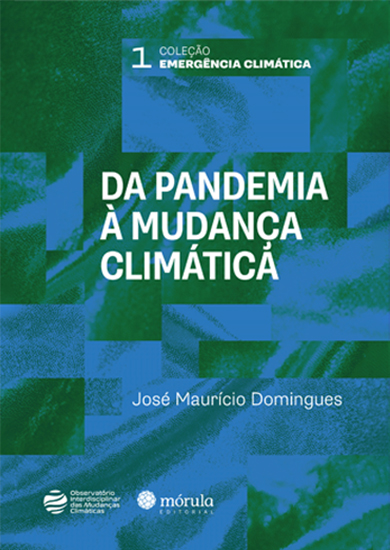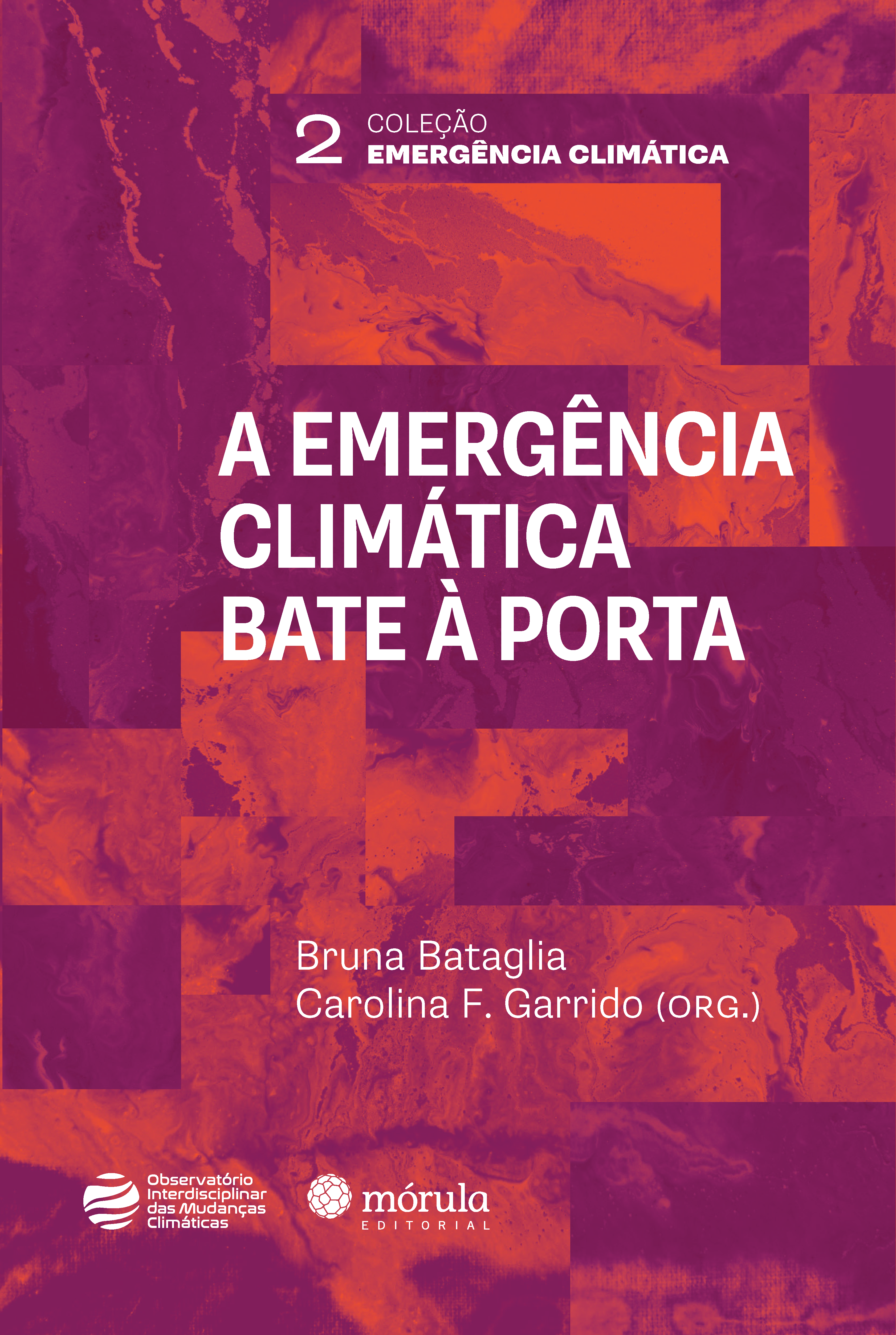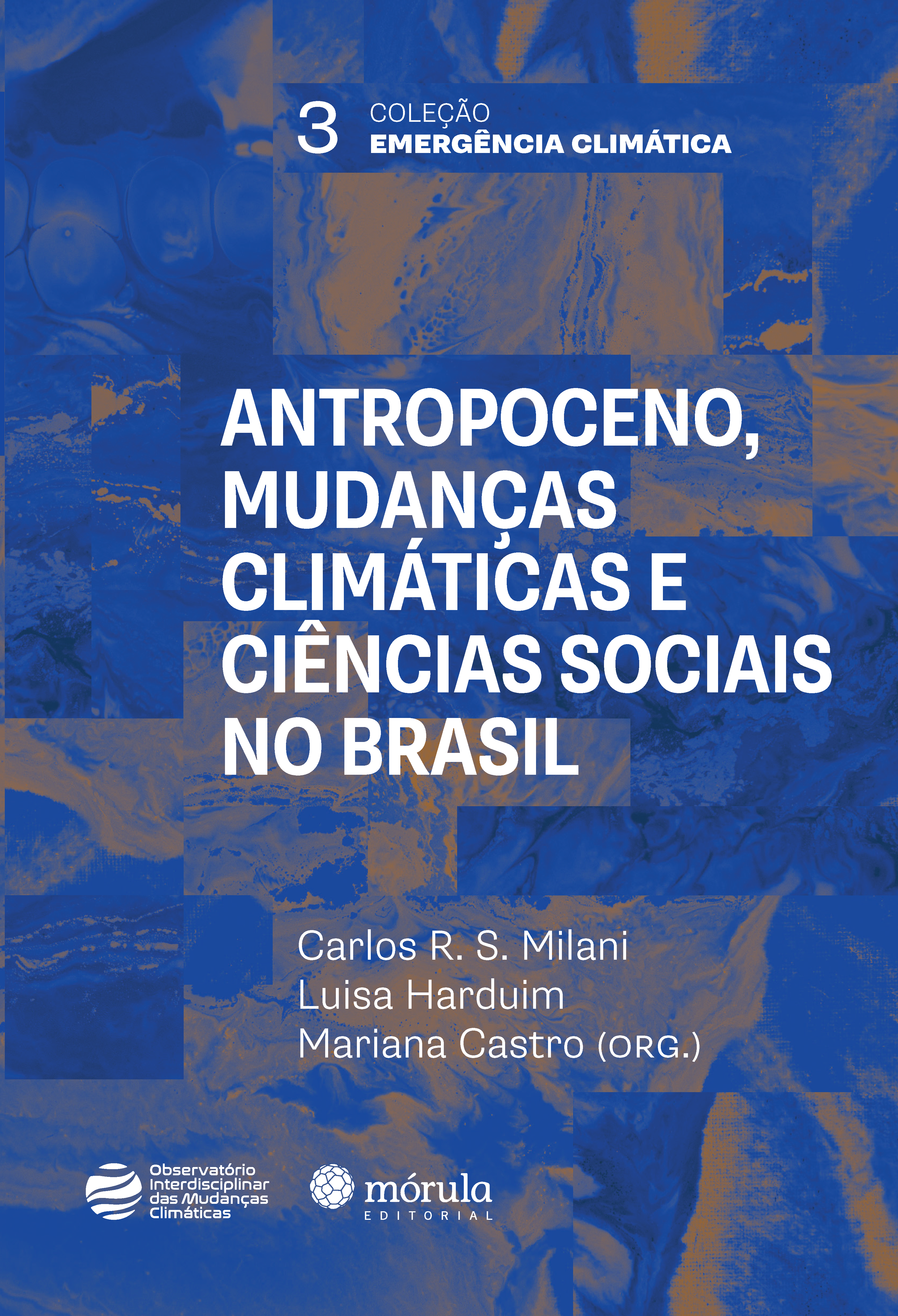Climate EmergencyCollection
Climate change has become one of the most widely debated issues in recent years, with serious implications for the definition of the role of the state and the different sectors and social agents. The debates surrounding the phenomenon often start from the assumption that it will be essential to reinvent ourselves as a society and civilisation, to rethink economic and political models in order to deal with the crisis. But it is equally necessary to address the short and medium term issues within the framework of contemporary civilisation, with viable and fair programmes for climate adaptation, energy transition and socio-ecological transformation.
Developed by the Interdisciplinary Observatory on Climate Change in partnership with Mórula Editorial, this collection aims to publicise a research agenda aimed at understanding climate change from the perspective of the social and human sciences, building dialogues between social and political actors, mobilising different generations and disseminating proposals for debates within universities, governments and civil society.
Collection coordinators
Editorial board
- 2025
The latest IPCC report (2021) reinforced that recent changes in the climate are widespread, rapid, intensified and unprecedented. The question posed is: how does climate change affect us and alter the order of society and politics? Living in suicidal modernity, driven by capitalism, the black box of traditional political issues is reopening. This leads to the need to overcome neoliberalism and practise new forms of transnational responsibility.
Understanding the social and political dimensions of these transformations is fundamental to developing strategies to deal with their impacts. This book is dedicated to precisely that.
Its first three chapters focus on the coronavirus pandemic, always from the perspective of a broadly conceived critical social theory. The following three chapters focus on climate change, theoretically tackling the question of ‘nature’ in modernity, its relationship with politics and how this leads to the climate issue.
- 2025
The climate has already changed, and the second volume of the Climate Emergency Collection shows why we also need to change. Written in accessible language, it presents the main debates on climate change, bringing together social, human and natural sciences, through seven chapters written by OIMC researchers. Covering topics such as false solutions, inequalities and collective mobilisations, inspired by the stages of grief, the collection analyses climate denialism to propose paths to understanding and action. From an interdisciplinary perspective, this book seeks to provide an understanding of what is at stake, the controversies involved, the interests and values that underlie the disputes between different agents, as well as an understanding of the formation of scientific consensus and political negotiations on one of the greatest problems of our time, inviting readers to imagine possible futures.
- 2025
This volume further explores the debate on the transformations that mark our times, when the climate emergency pierced the bubble of academia, expert networks and technical reports and became the focus of social and political discussions. In Brazil, with the intensification of extreme weather events, society in general seeks to understand the causes of the climate emergency, those primarily responsible for it and, above all, what needs to be done to adapt our cities and the countryside to this new reality. Based on the Observatory's experience, this work reflects on the challenges and opportunities for adapting to the new realities imposed by climate change in Brazil. Based on analyses and concrete proposals, the book shows how translating scientific knowledge into accessible language is essential for educating citizens, journalists, leaders, and managers capable of acting in the face of misinformation and the climate emergency. Through diagnoses, strategies, and possible pathways, this volume invites us to build a sustainable and fair future, in which science and society walk side by side in the ecological and energy transition that the planet demands.
- 2025
Organised as part of the activities promoted by the Jean Monnet Chair at the University of the State of Rio de Janeiro (EUgac-UERJ), this volume brings together authors from various Brazilian institutions who contribute to reflections on multiple dimensions of relations between the European Union and Latin America to broaden the national debate on strategies for the green transition of the EU economy, in particular, the impact on its relations with other countries. Based on this initiative, the collection broadens the scope of discussions by promoting an interdisciplinary and pluralistic dialogue on the challenges and opportunities of international cooperation in the face of the climate crisis. With a special focus on Brazil, the work offers a reflection on the country's role in global environmental negotiations and in the construction of sustainable foreign policies, combining theory, practice and criticism.



